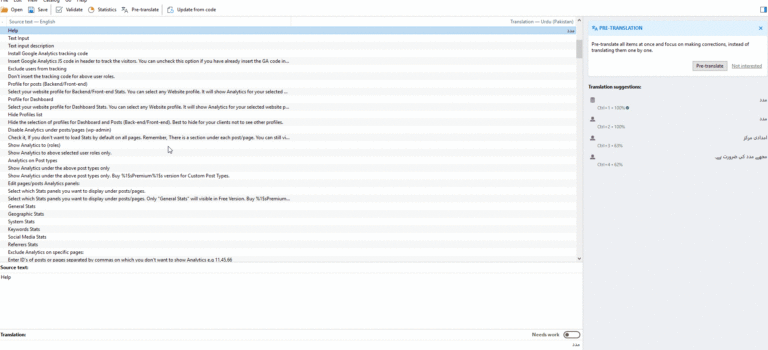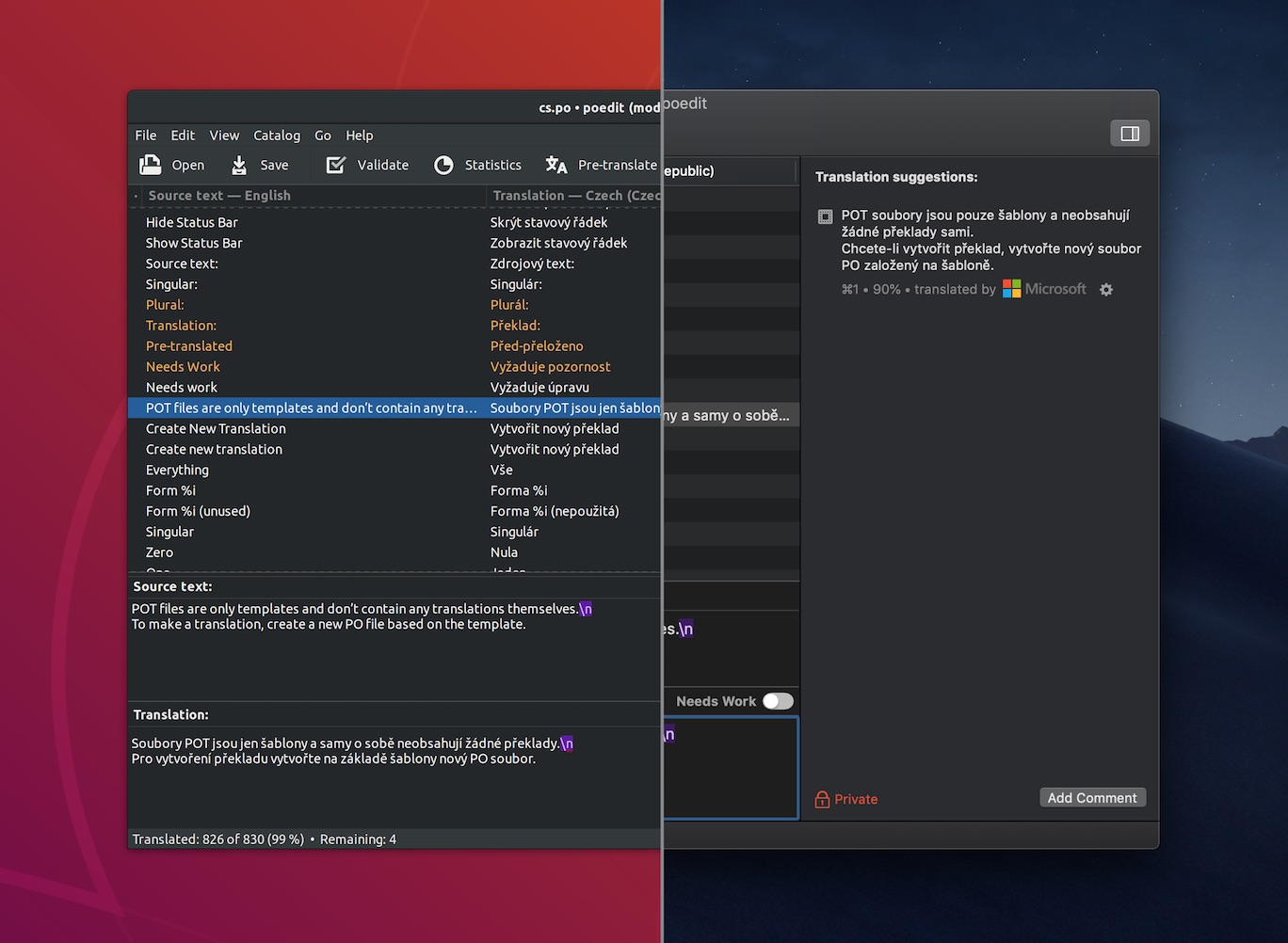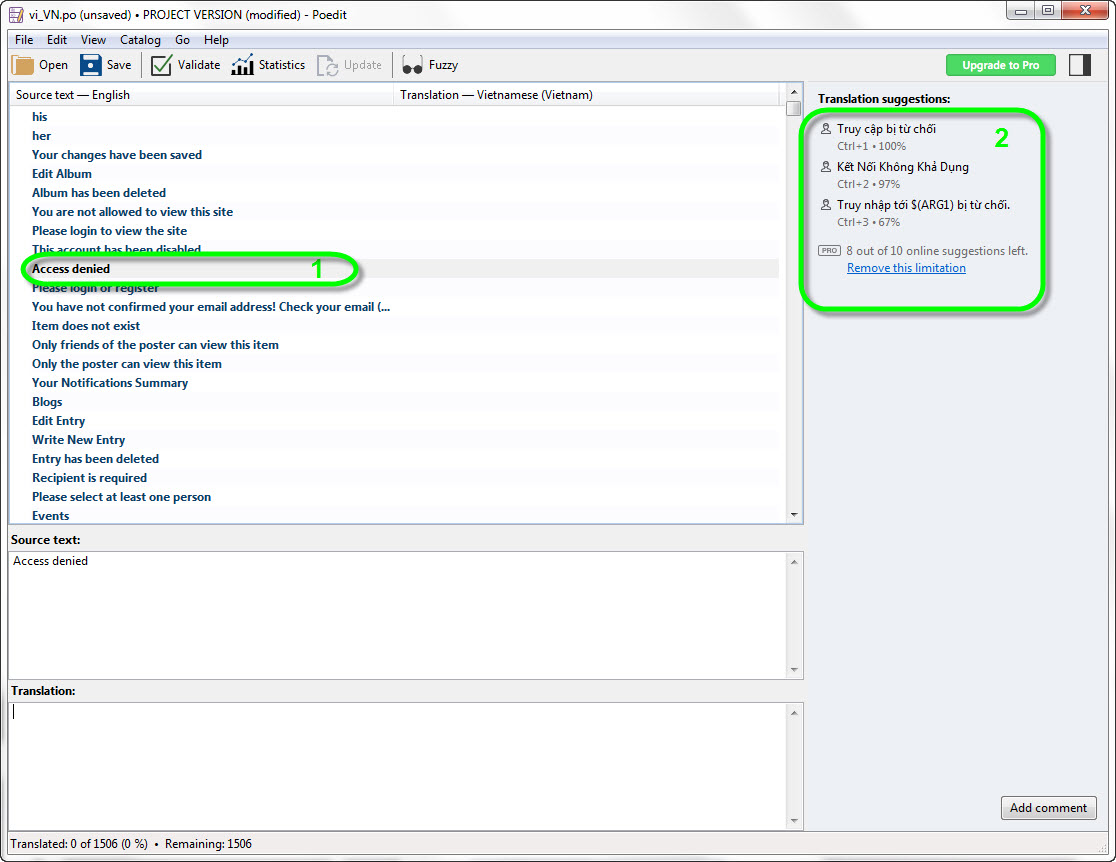
Step 1 ) Before you begin check to make sure you have set up your WordPress site with the correct language. (Optional but highly recommended)Ĭreate a WordPress plugin or theme translation using poedit
#Poedit add source key free
And ftp program like filezilla which is free or cPanel File Manager.Note: Nowadays plugins and themes can be translated online at /. Note: Remember there are many different Spanish locales, so make sure you are using the correct locale for your Spanish language. all-in-one-wp-security-and-firewall-es_ES.po.all-in-one-wp-security-and-firewall-es_ES.mo.The following is an examples of properly named po and mo files for a theme and a plugin. For example: Don’t use the following names classipress_es_ES.po or classipress_es-ES.po because they will not work. Important: Make sure your file name is named correctly or else it will not work. However the po and mo file name in a plugin or theme will have the name of the plugin and theme added to the locale. When you create and save the Spanish files in Poedit it creates two files es_ES.po and es_ES.mo. The language file used for editing in this tutorial is Spanish (Spain).
#Poedit add source key how to
If your CAT tool can translate XLIFF, then you can also try the Translate Toolkit's program po2xliff (and xliff2po), which may or may not work yet - test it first.Create a WordPress plugin or theme translation using poedit shows you how to create or edit a language file for themes and plugins. You can also use the Translate Toolkit's po2csv program to convert the PO files to CSV, which you can open in Excel and then translate in any program you want, and then save from Excel as CSV again and use csv2po to convert it back to PO.īefore you use po2csv and csv2po extensively, experiment with small files to see if your version of Excel handles CSV files correctly - although if not, you can set certain extra functions in po2csv and csv2po to make provision for it (eg codepage). You can then try to translate those formatted PO files in your CAT tool. It is a commandline tool but it produces compliant PO files quickly. You can try to use find/replace, but that is dangerous, so I suggest you get msgen.exe from the Gnu Gettext suite. To use them in Wordfast, Trados or OmegaT, you need to convert them to source=source format. I assume the client sent you compliant PO files to begin with. although they are displayed in PoEdit in columns, so perhaps the client simply means that he wants compliant PO files that open correctly in PoEdit. I have no idea what "the two columns" mean because PO files don't have columns. ".however, the client imposes to receive the Po files with the two columns. At 50.000 words workload I honestly feel it pays to go this way. Essentially it's a preprocessor for the Word global search & replace machine - and you will need something of this sort to do the required changes. The extra kick of course comes when learning how to parse the whole darn thing: the "source" It can be really HAIRY.I used Tortoise tagger by Alexander Okunev. But once you clean it, it should revert to a bilingual (source > target) PO file, you can check out with POedit. Of course if you then look at the bilingual contents before cleaning, it does look crazy.

Trados will then only see the second source as something to translate. The trick: make everything but the second string in the pair external or nontranslatable (!). essentially make a bilingual Source > Source PO file)Ģ. The latest method - and I tried a few - was close to what Harry suggests - but different.

I have translated what must be about 80.000 words of OpenOffice help ith TRADOS. My poEdit version was downloaded from You may want to have a look at pootle on sourceforge - one of the few projects dealing with PO format. My poEdit version was downloaded from I would greatly appreciate any help in this. While there seems to be no problem with processing the according HTML file with Tageditor, the question is how will I be able to convert the TTX file into the PO format once I have finished the translation?
#Poedit add source key software
If you find a solution you can work with the software you want but we need Sure if we can transform the html files into po format. I know we can export an html version and work with tageditor but I am not Imposes to receive the Po files with the two columns.

”It doesn't matter to the client if you use Tageditor or poEdit, however, the client Here is what the PM told me upon my proposal to use Tageditor: I started using poEdit, but it looks very time-consuming to me with at least 3 key strokes needed to advance from one TU to the next, so I would be much more comfortable using Tageditor instead of poEdit. This is needed for a website translation of some 50,000 words. Does anyone know of a way to convert a bilingual TTX file into a PO file (poedit file).


 0 kommentar(er)
0 kommentar(er)
